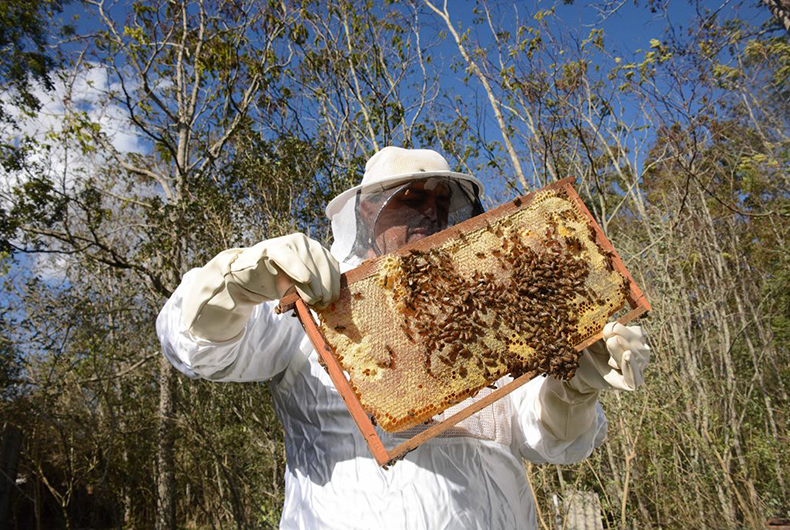
Disappearance of bees may cause more than one million deaths worldwide
The worldwide decline of pollinator – especially bees and other insects – can cause up 1,4 Additional million deaths per year, a worldwide mortality increase of almost 3%, researchers say.
This increase in mortality is the result of a combination of an increase in vitamin A and folic acid (folic acid vitamin B9 ou), vital for pregnant women and children, and an increased incidence of non-communicable diseases, such as heart disease, stroke (AVC) and certain cancers. These are the phenomena that cause, through dietary changes, a breakdown of the population of pollinators.
Deficiencies in vitamin A and folic acid can reach the eyes, leading to blindness, and cause malformations of the nervous system.
These health effects affect developed and developing countries, according to the analysis published on Thursday in The Lancet medical journal.
According to a complete elimination stage pollinator, 71 millions of people in low-income countries could find themselves deficient in vitamin A, is 2,2 billion who already have inadequate consumption have reduced their contributions again.
For folates, would 173 millions of people who would become disabled and 1,23 billions of people who would see their poor consumption further deteriorate.
A reduction of 100% of “Pollination services” could reduce overall fruit stocks 22,9% fruit, vegetables 16,3% is 22,9% in nuts and seeds, but with differences between countries.
In short, these dietary changes may increase the annual global deaths from noncommunicable diseases and those related to malnutrition 1,42 million deaths per year (2,7 % of the total annual mortality), according to the study led by Samuel Myers, da Universidade de Harvard.
A loss of pollination services limited to 50% equivalent to half (700.000) the excess mortality, that would mean the complete elimination of pollinators, according to estimates.
Another study, publicado na The Lancet Global Health”, quantifies a specific threat, so far never measure, for overall health carbon dioxide (CO2) due to human activity.
In this second study, reducing the zinc content of important food crops related to the increase in CO2 concentrations in the atmosphere will exhibit 138 millions of people at risk of zinc deficiency (nanismo, immune problems, premature deaths) in the world up 2050.
Besides, with the Rockefeller Foundation, The Lancet published a report on environmental changes “that go beyond climate change and threaten the progress made in health made over the last decades”.
Data: 15/07/2015

Sorry, the comment form is closed at this time.